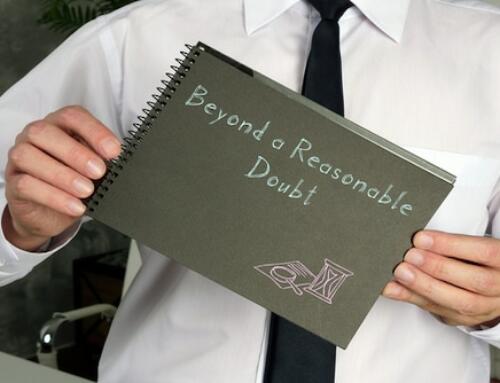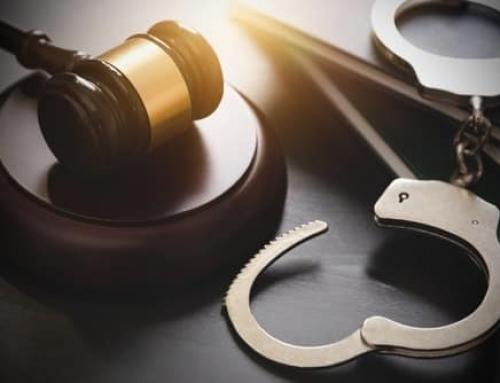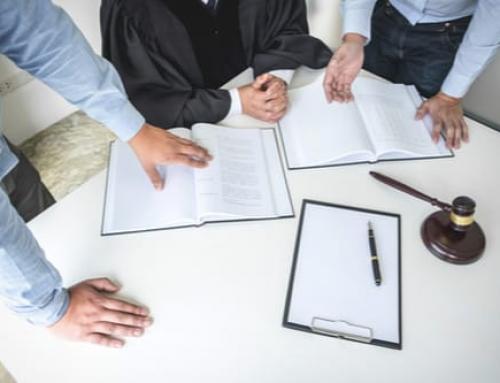If you have questions about math homework, you would not consult a literature teacher just as you would not consult a dermatologist when you are in need of heart surgery. Similar to teachers, doctors, and other professionals, there are lawyers and attorneys who are trained and have expertise in particular areas. Each type focuses on one or a few specific sections of the law, such as personal injury, family, estate, criminal, etc. In this article, we will cover the basics of criminal defense law and a criminal defense attorney.
What is Criminal Defense Law?
The Sixth Amendment to the United States Constitution states, “In all criminal prosecutions, the accused shall enjoy the right to a speedy and public trial, by an impartial jury of the state and district wherein the crime shall have been committed, which district shall have been previously ascertained by law, and to be informed of the nature and cause of the accusation; to be confronted with the witnesses against him; to have compulsory process for obtaining witnesses in his favor, and to have the assistance of counsel for his defense.” It guarantees all the rights of criminal defendants, including the right to a fair trial and the right to an attorney. Criminal defense law involves all of the protections afforded to people who have been accused of committing any type of crime. Fair treatment for the accused is in the hands of the criminal defense attorney as much as it is in the hands of the law itself. Without the Sixth Amendment and the assistance of an attorney, the balance of power would be skewed in favor of the government.
When you are being represented by a defense attorney, he or she will know exactly how to use constitutional guarantees to your advantage. For example, the physical items of evidence or witness statements against you that have been gathered by the government or a government agency could potentially be thrown out in the trial if your attorney comes to the conclusion that it has been obtained illegally, violating the Fourth Amendment pertaining to unreasonable searches and seizures. Criminal lawyers specialize in these areas of the criminal process: arrest, investigation, charges, sentencing, and appeals. Some are experts in fields as particular as homicide and traffic tickets. They will work for you both in and out of the courtroom, searching for faults in prosecutors’ cases to ensure charge dismissals and negotiating deals for lower charges and less jail time.
Common Types of Defense
In order to convict a criminal defendant, the prosecutor must prove beyond a reasonable doubt that he or she is guilty of committing a crime. During the trial, the defendant gets a chance to prove his or her innocence by presenting a defense. There are several defense strategies you and your attorney can sift through to decide which one will be the best at getting rid of charges or reducing penalties, but below are the two most common ones.
The most common defense used is that the defendant did not commit a crime — either someone else committed it or there was no crime in the first place. A defense attorney may claim that witness accounts are untrue in this situation. The defendant may also present that he or she had an alibi, preventing him or her from being able to commit the crime at the time it was committed. For example, you may have been accused of committing a crime on a certain date at 8 pm, but you were at a restaurant eating dinner from 7 to 9 pm, with a receipt to prove your purchase.
A common defense used by those who have been accused of violent crimes such as assault and homicide in self-defense. This defense claims that the defendant had no other choice but to harm the victim in order to avoid harm or death himself. In the case of homicide, the defendant must be able to prove that the attacker would have killed him or her and he or she committed the crime in order to prevent his or her own imminent death.
Reasons to Hire a Criminal Law Attorney
If you have been arrested for committing a crime, the first thing you need to do is contact a criminal law attorney before you talk to anyone else. The criminal justice system is not necessarily designed in a way that representing yourself will be beneficial to you. Even if you have not yet been arrested or charged but the police are showing interest in questioning you about a crime, you should contact an attorney right away. He or she can help protect your legal interests and give you advice on what you should and should not say when speaking to law enforcement. You do not want to inadvertently say anything that could help officers link you to the crime, and having your attorney present can help you avoid that. For more information on criminal law or other types of law, you can explore the Fishman Firm’s website to contact 267-758-2228 an attorney or read blog posts related to any questions you may have.






